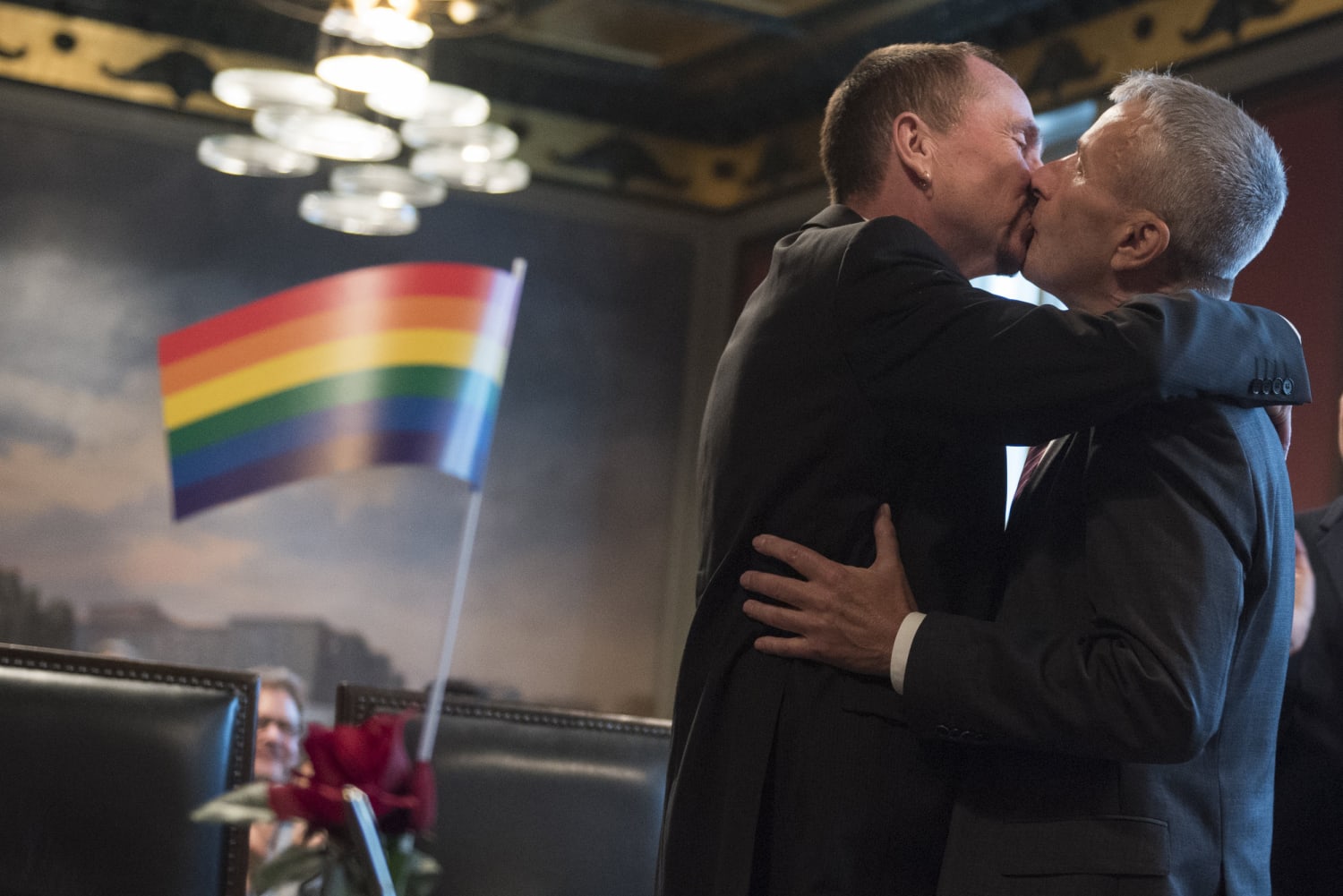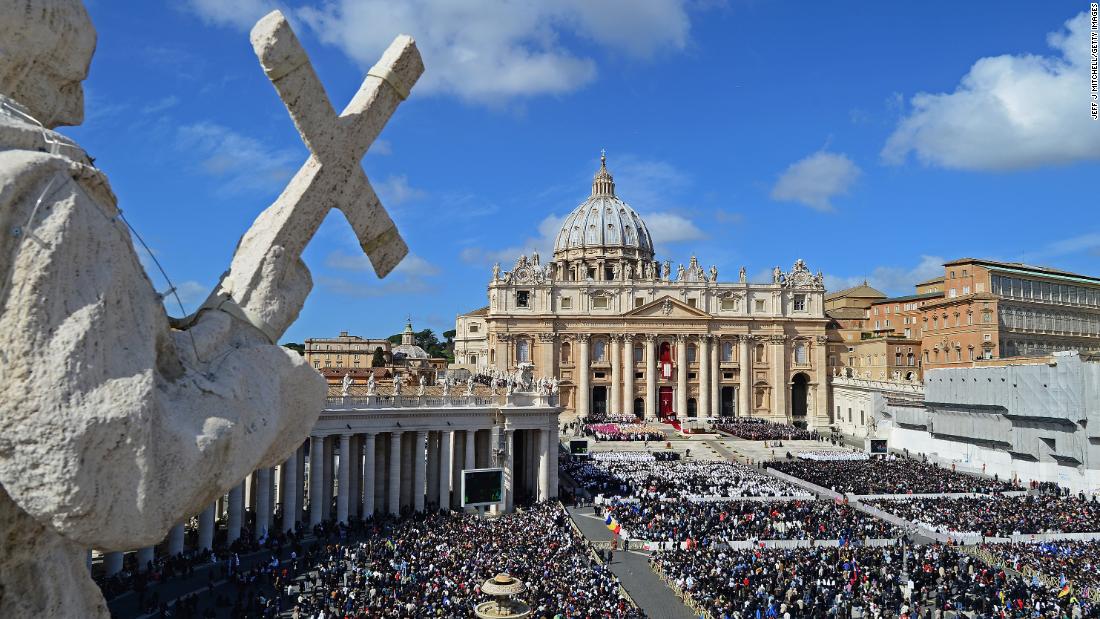
People change.
Societies change.
General attitudes towards certain subjects, ideas, or behaviors change.
None of that should be news to anyone. Change is the only true constant in this crazy, complicated world. I’ve certainly seen plenty over the course of my life. It really wasn’t that long ago that the idea of marijuana being legalized in one state, let alone a dozen, seemed unthinkable.
It also wasn’t that long ago that the idea of same-sex marriage being legalized nationwide seemed equally unthinkable. In terms of major social and/or political issues, that issue resonates with me because it became a hot button topic while I was a teenager. In essence, it grew as I grew.
I still remember all the headlines from 2004 when Massachusetts became the first state to legalize same-sex marriage. I also remembered all the heated discussions that came from it. I even participated in a few. I felt like I understood the arguments made by the proponents. I had little issue seeing the logic behind their points.
Two individuals love each other and want to get married.
The state currently prevents them from doing so, thereby denying them the many benefits associated with marriage.
That denial is simply not reasonable in a free society that permits people to marry whomever they choose.
However, it was the arguments made by the opponents that I often struggled to understand. Honestly, their arguments from tradition, morality, or the idea of “defending marriage” just didn’t make sense to me. Even as I got older and saw arguments against it from major pundits and thinkers, often from those who identified as conservative, I still didn’t get it.
How does two gay people getting married affect anyone?
How does it tangibly and measurably undermine marriage between heterosexual couples?
I never got a straight answer. Most of the time, I just got hit with a bunch of bible verses from the Old Testament or some variation of “marriage has always been this way.” I never found any of those arguments convincing.
Fast forward two decades and suddenly, the lack of substance in those arguments really show. More and more, people are started to realize that too, including those who identify as conservative and likely opposed same-sex marriage at one point.
Just recently, Gallup released a poll indicating that support of same-sex marriage was at a record high. On top of that, even those who vote republican and identify as conservative have since come to support it. It’s still not quite on the same level as that of liberal democrats, but it’s still a majority and that’s a big deal.
Gallup: Record-High 70% in U.S. Support Same-Sex Marriage
U.S. support for legal same-sex marriage continues to trend upward, now at 70% — a new high in Gallup’s trend since 1996. This latest figure marks an increase of 10 percentage points since 2015, when the U.S. Supreme Court ruled that all states must recognize same-sex marriages.
…
Republicans, who have consistently been the party group least in favor of same-sex marriage, show majority support in 2021 for the first time (55%). The latest increase in support among all Americans is driven largely by changes in Republicans’ views.
Now, I welcome this news. I think it’s an objectively good thing that more and more people support same-sex marriage. The opposition to it never came off as anything more than varying degrees of bigotry.
I also think homosexuality and LGBTQ issues have gotten to a point where they’re no longer so unfamiliar or radical. We see them on TV, in movies, and in major positions of power. At the same time, the brand of reactionary religious zealotry that condemns homosexuality has fallen out of favor.
Again, this is good news. Accepting same-sex marriage and affording same-sex couples the same rights and protections isn’t just fair and just. It’s the right thing to do. Even if you despise homosexuality, you can’t justify having your personal preferences imposed and enforced by law. That’s just un-American.
Beyond that news, though, I have a question and a challenge for those who once opposed same-sex marriage, but no longer do. I’ll even extend it to those who still oppose same-sex marriage. Now that same-sex marriage has been legal for over five years, I think this question is worth asking.
How much or how little has your life changed since same-sex marriage was legalized?
It’s an honest, sincere question. I’d really like to know. There was a lot of fearmongering on the part of opponents to same-sex marriage. I won’t get into the specifics, but there were real concerns by opponents that legalizing same-sex marriage would have dire consequences.
Have any of those consequences even played out? If so, what data indicates as such?
Again, that’s an honest inquiry. I’d really like to know.
In addition, I also have a challenge to those who once opposed same-sex marriage. It’s a bit broader in scope, but is just as relevant.
What other issues besides same-sex marriage have you come around on?
Like I said earlier, change is the only true constant. What’s considered normal and acceptable today might be considered atrocious tomorrow. The same goes for what we consider immoral or deviant. A couple decades ago, it was same-sex marriage. A century ago, things like divorce and interracial marriage were just as taboo.
It’s hard to understand the attitudes of generations that have long since passed on. However, the vast shift in attitudes do offer some perspective. I believe they challenge us all to contemplate our current attitudes and how differently they’ll be seen in future generations.
We can’t know for sure which position will change drastically between now and twenty years into the future. We should still make a concerted effort in refining our perspective. Same-sex marriage showed just how much attitudes towards one single issue can change within a couple decades. Which issue will undergo a similar change two decades from now? Only time will tell.




















